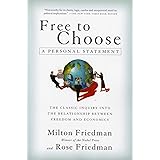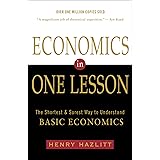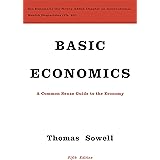
Enjoy fast, free delivery, exclusive deals, and award-winning movies & TV shows with Prime
Try Prime and start saving today with fast, free delivery
Amazon Prime includes:
Fast, FREE Delivery is available to Prime members. To join, select "Try Amazon Prime and start saving today with Fast, FREE Delivery" below the Add to Cart button.
Amazon Prime members enjoy:- Cardmembers earn 5% Back at Amazon.com with a Prime Credit Card.
- Unlimited Free Two-Day Delivery
- Streaming of thousands of movies and TV shows with limited ads on Prime Video.
- A Kindle book to borrow for free each month - with no due dates
- Listen to over 2 million songs and hundreds of playlists
- Unlimited photo storage with anywhere access
Important: Your credit card will NOT be charged when you start your free trial or if you cancel during the trial period. If you're happy with Amazon Prime, do nothing. At the end of the free trial, your membership will automatically upgrade to a monthly membership.
Buy new:
$13.33$13.33
Buy used:
$9.72





Download the free Kindle app and start reading Kindle books instantly on your smartphone, tablet, or computer - no Kindle device required.
Read instantly on your browser with Kindle for Web.
Using your mobile phone camera - scan the code below and download the Kindle app.

 Audible sample Sample
Audible sample Sample



The Road to Serfdom: Text and Documents--The Definitive Edition (The Collected Works of F. A. Hayek, Volume 2) Paperback – March 30, 2007

Explore your book, then jump right back to where you left off with Page Flip.
View high quality images that let you zoom in to take a closer look.
Enjoy features only possible in digital – start reading right away, carry your library with you, adjust the font, create shareable notes and highlights, and more.
Discover additional details about the events, people, and places in your book, with Wikipedia integration.
Purchase options and add-ons
An unimpeachable classic work in political philosophy, intellectual and cultural history, and economics, The Road to Serfdom has inspired and infuriated politicians, scholars, and general readers for half a century. Originally published in 1944—when Eleanor Roosevelt supported the efforts of Stalin, and Albert Einstein subscribed lock, stock, and barrel to the socialist program—The Road to Serfdom was seen as heretical for its passionate warning against the dangers of state control over the means of production. For F. A. Hayek, the collectivist idea of empowering government with increasing economic control would lead not to a utopia but to the horrors of Nazi Germany and Fascist Italy.
First published by the University of Chicago Press on September 18, 1944, The Road to Serfdom garnered immediate, widespread attention. The first printing of 2,000 copies was exhausted instantly, and within six months more than 30,000 books were sold. In April 1945, Reader’s Digest published a condensed version of the book, and soon thereafter the Book-of-the-Month Club distributed this edition to more than 600,000 readers. A perennial best seller, the book has sold 400,000 copies in the United States alone and has been translated into more than twenty languages, along the way becoming one of the most important and influential books of the century.
With this new edition, The Road to Serfdom takes its place in the series The Collected Works of F. A. Hayek. The volume includes a foreword by series editor and leading Hayek scholar Bruce Caldwell explaining the book's origins and publishing history and assessing common misinterpretations of Hayek's thought. Caldwell has also standardized and corrected Hayek's references and added helpful new explanatory notes. Supplemented with an appendix of related materials ranging from prepublication reports on the initial manuscript to forewords to earlier editions by John Chamberlain, Milton Friedman, and Hayek himself, this new edition of The Road to Serfdom will be the definitive version of Hayek's enduring masterwork.
-
Print length283 pages
-
LanguageEnglish
-
PublisherUniversity of Chicago Press
-
Publication dateMarch 30, 2007
-
Dimensions6 x 1 x 9 inches
-
ISBN-100226320553
-
ISBN-13978-0226320557
Frequently bought together

Similar items that may ship from close to you
-
 Few are ready to recognize that the rise of fascism and naziism was not a reaction against the socialist trends of the preceding period but a necessary outcome of those tendencies.Highlighted by 2,203 Kindle readers
Few are ready to recognize that the rise of fascism and naziism was not a reaction against the socialist trends of the preceding period but a necessary outcome of those tendencies.Highlighted by 2,203 Kindle readers -
 In this sense socialism means the abolition of private enterprise, of private ownership of the means of production, and the creation of a system of “planned economy” in which the entrepreneur working for profit is replaced by a central planning body.Highlighted by 2,118 Kindle readers
In this sense socialism means the abolition of private enterprise, of private ownership of the means of production, and the creation of a system of “planned economy” in which the entrepreneur working for profit is replaced by a central planning body.Highlighted by 2,118 Kindle readers -
 We have progressively abandoned that freedom in economic affairs without which personal and political freedom has never existed in the past.Highlighted by 1,852 Kindle readers
We have progressively abandoned that freedom in economic affairs without which personal and political freedom has never existed in the past.Highlighted by 1,852 Kindle readers
Editorial Reviews
Review
About the Author
F. A. Hayek (1899–1992), recipient of the Presidential Medal of Freedom in 1991 and co-winner of the Nobel Prize in Economics in 1974, was a pioneer in monetary theory and a leading proponent of classical liberalism in the twentieth century. He taught at the University of Vienna, University of London, University of Chicago, and University of Freiburg.
Bruce Caldwell is research professor of economics and the director of the Center for the History of Political Economy at Duke University. He is the general editor of the Collected Works of F. A. Hayek series, also published by the University of Chicago Press.
Product details
- Publisher : University of Chicago Press; First Edition (March 30, 2007)
- Language : English
- Paperback : 283 pages
- ISBN-10 : 0226320553
- ISBN-13 : 978-0226320557
- Item Weight : 2.31 pounds
- Dimensions : 6 x 1 x 9 inches
- Best Sellers Rank: #10,174 in Books (See Top 100 in Books)
- #10 in Economic History (Books)
- #14 in Theory of Economics
- #20 in History & Theory of Politics
- Customer Reviews:
About the author

Friedrich August Hayek (1899–1992), recipient of the Medal of Freedom in 1991 and co-winner of the Nobel Memorial Prize in Economics in 1974, was a pioneer in monetary theory and the principal proponent of libertarianism in the twentieth century. He taught at the University of London, the University of Chicago, and the University of Freiburg. His influence on the economic policies in capitalist countries has been profound, especially during the Reagan administration in the U.S. and the Thatcher government in the U.K.
Customer reviews
Customer Reviews, including Product Star Ratings help customers to learn more about the product and decide whether it is the right product for them.
To calculate the overall star rating and percentage breakdown by star, we don’t use a simple average. Instead, our system considers things like how recent a review is and if the reviewer bought the item on Amazon. It also analyzed reviews to verify trustworthiness.
Learn more how customers reviews work on Amazon-
Top reviews
Top reviews from the United States
There was a problem filtering reviews right now. Please try again later.
(Note: I own and have READ this book) (...)
Short review: strongly recommended. A timeless classic. An analytic exposition of the same old re-cycled, cancerous, glib, smug nonsense that we hear endlessly repeated so often today. Namely that (yawn) Capitalism and the Free Market are unjust, inequitable, and dying anyway. No good has ever (EVER) come from rich, corrupt businessmen. They are exploiters and parasites. They need to be replaced by a benevolent, kind, compassionate 'planned' society. Administered by an Elite body of Federal Planners in Washington, who are wise and kind, (a tear trickles down our cheek), and who consist heavily of academics, intellectuals and Supreme Court Judges. We need more Government bodies, because they are fair, balanced, and wise. We need more rules, regulations, taxes and government inspectors to help business and private investment. (All kneel....)
A heavy read, requires concentration and dedication, and be prepared to look up many references. Some long paragraphs, some convoluted sentences, some ponderous pronunciations, but a work, written roughly between 1938 to 1944, which can be used as a stunning blue print to understand today's misleading representations by left wing extremists and political agitators. .What we see today in America is nothing new. The poorly read, uninformed, short sighted, activists, eager as ever to mount the barricades, but quite unwilling to sit, read, listen... and think.
It's the Old Marxist Brigade, the dreamers and the malcontents, revamped, with changed colors, new rhetoric, and lots of Utopian promises of 'free lunch' for all. In fact, they are intent on their own personal gain and self aggrandisement. Power politics as usual. Hayek foresaw it all, and described it for us in this incredibly clear sighted and clairvoyant work. This book has been an important inspirational source for many of today's more popular trendy conservative writers, although, so it seems, most will not admit to it. (With the exception of Mark Levin in his interesting "Liberty and Tyranny")
Long review: I like an author who entitles a chapter "Why the worst get on top" (chapter 10). I've often wondered the same thing. On page 160 he says: "There are three main reasons why such a numerous and strong group with fairly homogeneous views is not likely to be formed by the best but rather by the worst elements of any society."
He then gives "three main reasons", which I suggest are well reasoned, well thought out, and ring remarkably true of today's self appointed saviours of the exploited masses. Check it out yourself.
I'll quote you part of his third reason:
"It seems almost a law of human nature that it is easier for people to agree on a negative program - on the hatred of the enemy, on the envy of those better off - than on any positive task."
P.162: "Collectivism has no room for the wide humanitarianism of liberalism but only for the narrow particularism of the totalitarian."
Chapter 2 is called "The Great Utopia", and if you're a bit of a weathered cynic like me, you'll enjoy it. Page 77 contains the classic quote from Tocqueville "Democracy and socialism have nothing in common but one word: equality. But notice the difference: while democracy seeks equality in liberty, socialism seeks equality in restraint and servitude".
On p. 78, Hayek says: "There can be no doubt that the promise of freedom has become one of the most effective weapons of socialist propaganda and that the belief that socialism would bring freedom is genuine and sincere. But this would only heighten the tragedy if it should prove that what was promised to us as the Road to Freedom was in fact the High Road to Servitude..."
Chapter 11 is called "The End of Truth" and you have to smile. Maybe Hayek was a secret time traveler. Maybe he visited America in the year 2009. If he did, then he penned the opening paragraph of this chapter for Americans today. Read it, you might like it. He continues on page 172: "The moral consequences of totalitarian propaganda....are of an even more profound kind. They are destructive of all morals because they undermine one of the foundations of all morals: the sense of and the respect for truth."
Chapter 13 is called "The Totalitarians in our Midst", and must have been written yesterday. It contains so many quotable quotes, I shall limit myself to two: "...there is scarcely a leaf out of Hitler's book which somebody or other in England or America has not recommended us to take and use for our own purposes." (p.195)
Or how about this one, same page: "Individualism must come to an end absolutely. A system of regulations must be set up, the object of which is not the greater happiness of the individual.... but the strengthening of the organized unity of the state for the object of attaining the maximum degree of efficiency..."
This book is a classic. The introduction by Bruce Caldwell is detailed.
My two minor grumbles would be:
1) that some of the sentences are very long winded. Lots of clauses, juxtapositions, conditional statements. I read a lot, but I frequently found myself forced to re-read a sentence, and sometimes a whole paragraph. Hayek crams a lot into every word. Anybody who says this book is an 'easy read', with 'smooth prose' possesses a much higher IQ than I do.
I still can read any page in Hayek, and enjoy it. It's a rich offering.
2) So why in heck are there only 44 reviews so far of this masterpiece on Amazon? Many authors today, with over 1,000 reviews, widely feted with lots of rah-rah-rah and prime time hoopla-la-la, clearly show Hayek Road-to-Serfdom influence in their work. They don't always admit it.
For my money, THIS is a major source for many of today's writers. Yup, you have to work at Hayek. He's not easy. Roll up your sleeves. Take notes. You can't watch the 'Commie News network' (CNN) at the same time, do the crossword, and listen to your favorite rapper. But Hayek is overwhelmingly well worth every effort.
A truly great, gripping, far sighted classic.
Hayek's thesis is thus: Any collectivist form of government, whether they be Socialist/Communist or Fascist (for all practical purposes, both are viewed as different aspects of the same thing, because both require strong centralized government power), will always require an ever increasing amount of authority over society in order to survive. Such authority will inevitably erode and destroy individual rights, resulting in increasing oppression and tyranny. It does not matter how "good" or "moral" the people who are doing the centralized planning are, because inevitably those who are in control will either be corrupted by the power they wield, or be supplanted by those who crave power. America and Britain, he feared, were heading down the same road that Germany and Russia had already traveled, and in that direction lay the death of individual liberty.
Hayek backs his theory up with history and logic, and lays out a compelling case for why those who value individualism should look with deep mistrust at any attempt to organize, nationalize, or otherwise collect into government controlled units that which had heretofore been the province of private enterprise and private citizens. Further, he shows how the suppression of individual rights has long been the aim of Socialism and Fascism, extensively quoting both the academics of his day and those of the generations before. The rights that we take for granted -- freedom of speech, freedom of religion, freedom to travel or own property or even to pursue the career we choose -- have always been in the crosshairs of collectivists and central planners. Seen by many social thinkers as a direct threat to their stated aims, individual rights were often categorized as something that must be controlled or suppressed in order to reorganize society along what the planners considered to be more rational, scientific, and equitable lines (with naturally, only the planners themselves allowed to decide what was rational, scientific, and equitable). If you had always wondered how societies can so easily succumb to totalitarian ideals, Hayek offers a very lucid (and frightening, when one considers the world around us today) explanation for how that might occur. As a warning against the dangers of centralized government control, The Road to Serfdom succeeds well beyond even the writers expectations.
But for those who think Hayek is thoroughly on the side of Laissez-Faire capitalism, think again: Hayek also attacks monopolistic corporations, as a sort of "socialism by proxy", for much the same reason he distrusts centralized governments. He was also an early -- and enthusiastic -- proponent of European Union, as the later chapters of his book show (and something which even his detractors seem to find surprising). And while his criticisms of collectivism are thorough, it should also be noted that Hayek states unequivocally that he was not against government regulation or intervention per se, only that such intervention should only be used in circumstances where private society was not adequate to compensate. Thus, Hayek's work should not be viewed as right-wing or left-wing; it is thoroughly Libertarian, and a Libertarianism that recognizes the totalitarian tendencies on both sides of the political divide.
Hayek's prose is generally readable, but has the misfortune to be at times somewhat academic; those not used to that style of writing may find themselves periodically going back a few paragraphs and rereading, just to make sure they understood his line of thought. Hayek's work also has an annoying tendency to presuppose some knowledge of political and social debates going on in Britain during World War II, details which are now mostly forgotten; thankfully, this edition does have substantive footnotes. But the largest problem with the book is still the same one that many critics have previously complained about, namely that while Hayek extensively criticizes Socialism/Communism and Fascism, he offers very few proposals as to how to remedy the problem, or even as to where the lines should be drawn. That was left for another day.
Many Keynsians would have you believe that this book is irrelevant, that the Austrian School that Hayek was a member of has long since been "thoroughly discredited", and that Hayek himself should be dismissed merely because he was a favorite of such conservatives as William F. Buckley, Winston Churchill, and Ronald Reagen. Ignore these fools. I do not think they understand Hayek, and are only interested in discrediting someone they view as a polar opposite of Keynes (despite the fact that Keynes himself spoke glowingly of The Road to Serfdom). Just because the totalitarianism that Hayek was writing about -- primarily Nazi Germany, but also Fascist Italy and Communist Russia -- have long since disappeared does not mean that his criticism and analysis are without merit, nor that it remains no less invalid today than it was sixty years ago. One only has to logon to the latest news and read the opinion pieces, where the questions of whether or not to nationalize certain industries or to what extent ordinary citizens must expect to "sacrifice" for the good of the whole, to realize that the threats that Hayek was warning about are still very much present, and will continue to do so for as long as government is permitted to assume more and more responsibility over our everyday lives.
The Road to Serfdom is an important book, and one that should be read by students of politics and economics of all persuasions.
Top reviews from other countries
alles was ich jetzt sage, ist zu wenig und würde es nicht wiedergeben können.
Was für Gedanken und wie wahr ist dieser Inhalt.
Lesen, bevor solche Bücher verschwinden















